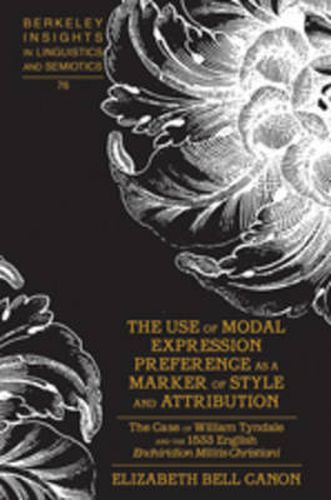Readings Newsletter
Become a Readings Member to make your shopping experience even easier.
Sign in or sign up for free!
You’re not far away from qualifying for FREE standard shipping within Australia
You’ve qualified for FREE standard shipping within Australia
The cart is loading…






Can an author’s preference for expressing modality be quantified and then used as a marker of attribution? This book explores the possibility of using the subjunctive mood as an indicator of style and a marker of authorship in Early Modern English texts. Using three works by the sixteenth-century biblical translator and polemicist, William Tyndale, Elizabeth Bell Canon establishes a predictable preference for certain types of modal expression. The theory of subjunctive use as a marker of attribution was then tested on the anonymous 1533 English translation of Erasmus’ Enchiridion Militis Christiani. Also included in this book is a modern English spelling version Tyndale’s The Parable of the Wicked Mammon.
$9.00 standard shipping within Australia
FREE standard shipping within Australia for orders over $100.00
Express & International shipping calculated at checkout
Can an author’s preference for expressing modality be quantified and then used as a marker of attribution? This book explores the possibility of using the subjunctive mood as an indicator of style and a marker of authorship in Early Modern English texts. Using three works by the sixteenth-century biblical translator and polemicist, William Tyndale, Elizabeth Bell Canon establishes a predictable preference for certain types of modal expression. The theory of subjunctive use as a marker of attribution was then tested on the anonymous 1533 English translation of Erasmus’ Enchiridion Militis Christiani. Also included in this book is a modern English spelling version Tyndale’s The Parable of the Wicked Mammon.